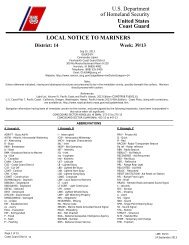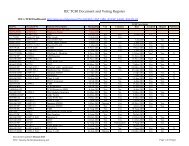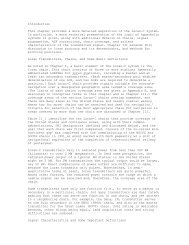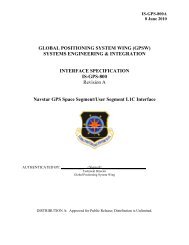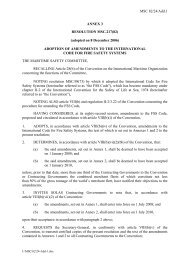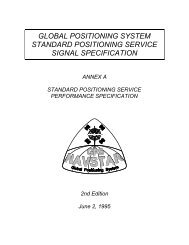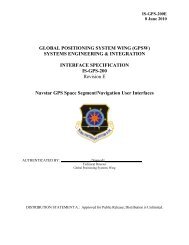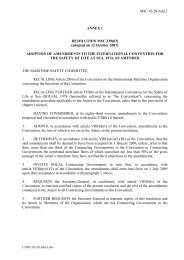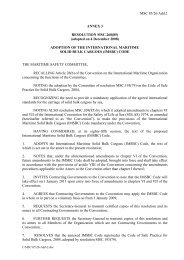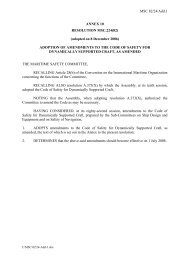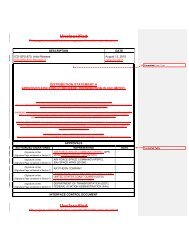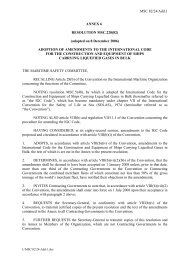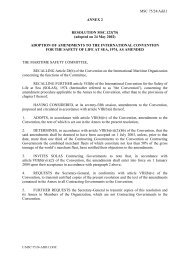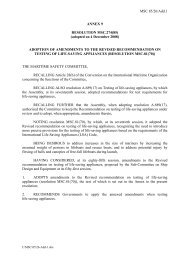TFSR-63 - US Coast Guard Navigation Center
TFSR-63 - US Coast Guard Navigation Center
TFSR-63 - US Coast Guard Navigation Center
Create successful ePaper yourself
Turn your PDF publications into a flip-book with our unique Google optimized e-Paper software.
authorities as input for appropriate international conferences.3. The FCC Reports: Ghassan Khalek reported for the FCC, the following arehighlights of his report:a. Further Part 80 Rule Making. New FCC Rulemaking is expected to bereleased soon dealing with such matters as the phase out of Inmarsat B and E, the <strong>Coast</strong><strong>Guard</strong> Petition on several aspects of the Automatic Identification System (AIS), andseveral adjustments to reflect actions taken by the ITU. Hopefully, the following pendingPetitions will also be resolved:b. Task Force Petition to Authorize Use of Marine Handheld Radios ashorein Maritime Areas. In June 2009, the FCC published the Task Force Petition requestingauthority to use VHF handheld radios ashore in maritime areas allowing 30 days forcomment. The public comment period has ended with no responses either pro or con.c. RTCM Petition to Authorize Small Message Data Services on VHFFrequencies. The RTCM has petitioned the FCC to accept its recommendations for asmall message service on VHF frequencies using data techniques. The Petition waspublished by the FCC and Public Comment closed 15 October 2009. There were 28comments, all favorable.d. Task Force Petition Urging Improved MMSI Management. The FCCdenied the Task Force petition earlier but now hopes to implement many of the TaskForce recommendations when the Universal Licensing System (ULS) is updated in thenear future.e. Ship Station License Update. The following is a tabulation of active ShipStation Licenses:54,920 SA Voluntary Vessels; 29,908 of these also hold MMSI20,533 SB Compulsory Vessels, 13,977 of these also hold MMSI4. Update Report by Satellite Service Provider Inmarsat. Chris Worthamprovided an Inmarsat update with the following highlights:a. Emergency Calling ‘505’ Implemented for the FleetBroadband Service.This emergency calling system has been implemented for use by all FleetBroadband (FB)terminals. The resemblance of ‘505’ to ‘SOS’ is intentional. Alerts via the ‘505’ systemare routed to appropriate RCCs in each satellite ocean region and are free calls. Note that‘505’ does not provide priority for Distress and Safety messages. Inmarsat will seekapproval to qualify for GMDSS certification of the FB 500 (but probably not the FB 150and FB 250) by 2014.b. Marine Safety Information (MSI) Via Fleet Broadband. Fleet Broadbandwill make all SafetyNET MSI available for ships which want to “pull” the information



